Members

Dustin Dial
Postdoctoral Scholar
Ph.D., Entomology, University of Georgia, Athens, GA
B.S., Biology, University of Georgia, Athens, GA
I'm primarily interested in how symbiotic organelles like mitochondria originate and become integrated into their hosts. I approach this question using protists and insect-bacterial partnerships as models. In the ECBSU, I'm studying gene-rich mitochondria of diverse protists to reconstruct early steps in the evolution of the mitochondrion. I’m also exploring the evolution of organelle-like symbionts and mitochondria of insects such as scales and adelgids. I aim to understand how symbioses become permanent and how they shape cellular and genomic complexity over evolutionary time.
My Ph.D. work aimed to understand the ecological and evolutionary forces that can destabilize long-term symbiotic relationships. I studied obligate endosymbionts of adelgids, an insect group with a highly dynamic history of symbiont gains and losses compared to other insects. I explored how natural fluctuations in host dietary quality may have influenced symbiont genome evolution, and how they currently shape host-symbiont gene expression and cell biology.
Outside the lab, I enjoy playing guitar, exploring Okinawa’s landscapes and culture, and spending time near or in the ocean. I also live with a very opinionated cat who accompanied me on the move to Japan.

Lison Hey
Research Intern (Oct 2025-Mar 2026)
MSc. in Biology (Ecophysiology), Sorbonne Université, France
BSc. in Biology, Université Paris Cité, France
I recently completed my Master’s degree in Ecophysiology, where I developed a strong interest in marine symbiotic relationships, particularly those thriving in extreme environments such as coral reefs and hydrothermal vents. At the ECBSU, I aim to investigate the associations between ectosymbiotic ciliates, bacteria, and shrimp inhabiting chemosynthesis-based ecosystems, combining metagenomic and microscopic approaches to uncover their metabolic potential and visualize their spatial interactions. Outside the lab, I enjoy snorkeling, diving, hiking, and collecting stickers.
Hüseyin Sarıkeçe
Research Intern (Jun-Nov.2025)
MSc. in Biology, Istanbul University, Türkiye
BSc. in Molecular Biology and Genetics, Istanbul Technical University, Türkiye
During my bachelor years, I was deeply interested in environmental microbiology, symbiosis and the basic units of cellular life. This led me into two abroad internships on microbial ecology and, for my MSc., attracted me into my lab in Türkiye working on Mollicutes which undergo reductive evolution- thus a great template for learning the essentials o life. Finally, I am in ECBSU and looking forward to working with Spiroplasma assosicated with corals and jellyfish, which combines my passions in science in one project. In my spare time, I like to watch movies and TV series as well as painting-specifically scientific botanical illustrations nowadays.

Riko Chinen
Ph.D. student
BSc. in Biology, Dept. of Science, Kyushu University, Japan
My interest in coral evolution brought me back to Okinawa to pursue my PhD. During my bachelor’s, I studied the macrofaunal communities living among coral branches at the Amakusa Marine Biological Laboratory. For my rotation project, I’m focusing on biomineralization in blue corals, comparing them with stony corals at the genomic level. I’m excited to learn as much as I can in Husnik Unit. Outside of research, I enjoy playing soft tennis with a local team, as well as snorkeling and diving.
Claudia Rabuffo
Postdoctoral Scholar
BSc. in Molecular Biology, University of Padua, Italy
MSc. in Evolutionary Biology, University of Padua, Italy
Second Level Specialization Degree in Machine Learning and Big Data for Precision Medicine, University of Padua, Italy
PhD in Molecular Parasitology, Ludwig Maximilian University of Munich, Germany
I'm interested in genomics and epigenomics, especially of understudied organisms that can be characterized to reveal fundamental biological principles and highlight evolutionary diversity. To this end, I apply state-of-the-art molecular biology and bioinformatics methods.
During my master studies at the University of Padua, Italy, I worked on the development of molecular biology methods for de novo genome and transcriptome assembly. During my PhD studies in Munich, Germany, I studied the linear sequence and three-dimensional genome organization of the trypanosome, the causative agent of sleeping sickness. In the Husnik lab, I plan to study the spatial distribution of horizontally transferred genes in the citrus mealybug genome. And to share lots of cat pictures too.
Outside the lab, I enjoy writing, Brazilian jiu-jitsu, diving, and hiking.
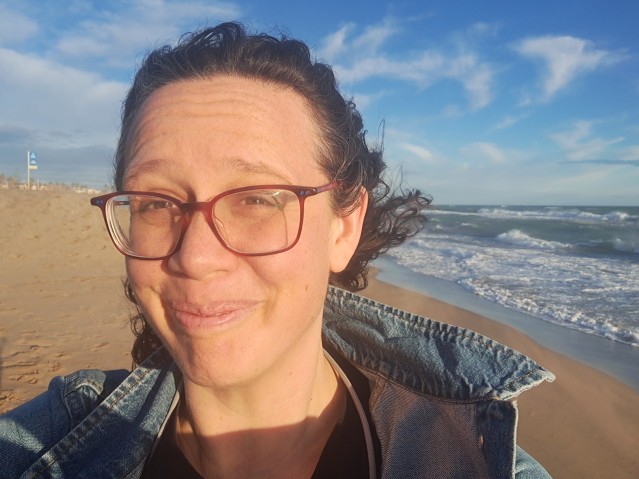
Michelle Leger
Staff Scientist
メール: Email
PhD in Biochemistry and Molecular Biology from Dalhousie University, Canada
MSc in Genetics from the University of British Columbia, Canada
BSc in Genetics from the University of York, U.K.
I am interested in the early evolution of eukaryotes, and in mitochondrial origins, evolution, and diversity. Animals, fungi and plants make up only a small fraction of eukaryotic lineages, and so in order to study these questions across eukaryotic diversity, my research focuses on protists - diverse, mainly microbial organisms that collectively make up the majority of eukaryotes.
For my PhD I studied modified mitochondria in protists inhabiting low-oxygen environments at Dalhousie University (Canada), and for my earlier postdoctoral research I studied protists closely related to animals with a view to understanding animal origins at the Institute of Evolutionary Biology (Barcelona, Spain). At the ECBSU I hope to study the variety of interactions between mitochondria and more recently established endosymbionts.
I love swimming and snorkeling, exploring new hiking trails, terrible puns, and doodling (including terrible visual puns). Any cat pictures shared with Yi-Kai Fang should be cc’d to me.
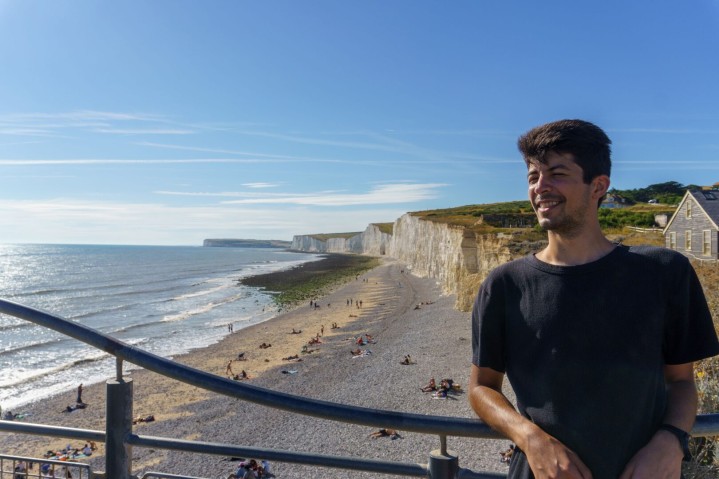
Vasyl Vaskivskyi
Ph.D. Student
BSc. in Veterinary Medicine, National University of Life and Environmental Sciences of Ukraine
MSc. in Molecular Biology, Taras Shevchenko National University of Kyiv, Ukraine
I am interested in the evolution of plastids. Plastid is an ancient organelle that originated thanks to the endosymbiosis with photosynthetic cyanobacteria. Some modern organisms also happen to have similar symbioses. In my project, I want to use a protist that bears a photosynthetic cyanobacterial symbiont and compare it to a heterotrophic relative from the same lineage. My goal is to expose differences in gene expression that allow this symbiosis to arise and thrive. Before coming to OIST, I worked as an Imaging Bioinformatician at Wellcome Sanger Institute and HuBMAP Consortium in the UK where I focused on the development of processing pipelines for imaging spatial omics data such as CODEX, CellDive, MIBI, and IMS. In my free time, I enjoy getting lost in new places, hiking, computer graphics, and a bit of math.
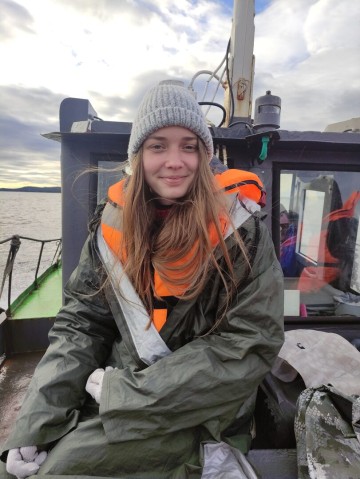
Anastasia Borodina
Ph.D. student
BSc. and MSc. in Biology, Voronezh State University, Russia
My path in biology began with research in biophysics. As an undergraduate student, I studied the patterns of structural organization of glycosidases: internal cavities, tunnels, and pores in the composition of monomers and dimers of exo- and endoinulinases. As a master's candidate, I was inspired by research in the field of protistology, and my master's thesis was devoted to the study of morphology, ecology, and molecular phylogeny of telonemids. I am interested in reconstructing the phylogenetic tree and the early evolution of eukaryotes through genomic and morphological studies of protists, as well as in studying their biodiversity and ecology. Apart from my research, I am passionate about learning to play musical instruments, hiking, painting watercolors, and learning Spanish and Arabic.
Arno Hagenbeek
Ph.D. Student
I am interested in microbial biology, particularly microbe-microbe and microbe-host interactions. I am especially intrigued by symbiotic microbiomes as they usually involve a complex network of interactions between the microbes as well as the hosting organism. Previously, I have analyzed microbiomes in a wide variety of organisms, ranging from Arabidopsis rhizosphere to the human intestine. For my Ph.D. thesis in the Husnik unit, I aim to map the microbiomes of microscopic marine invertebrates which remain highly understudied. In my free time, I enjoy playing piano, hiking, and martial arts.
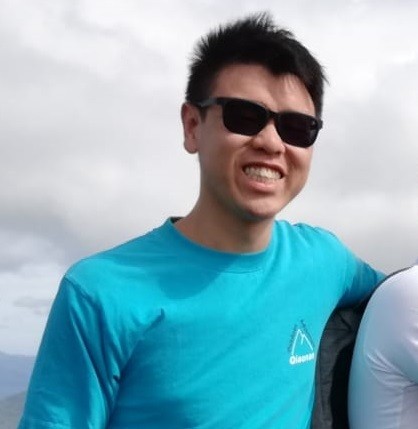
Yong Heng Phua
Ph.D. Student
BSc. in Biology, Hokkaido University, Japan
I have been working on different species of benthic dinoflagellates (Coolia, Ostreopsis, and Amphidinium spp.) during my undergraduate course. I have also worked for five months as a research intern in the Husnik Unit and started exploring the role of bacterial symbionts in diverse aspects of dinoflagellate biology (e.g. toxin production or photosynthesis). During my rotation, I plan to explore symbiotic interactions between marine dinoflagellates from Okinawa and their endosymbionts. When I am not working, I am usually cooking or hiking in the mountains.
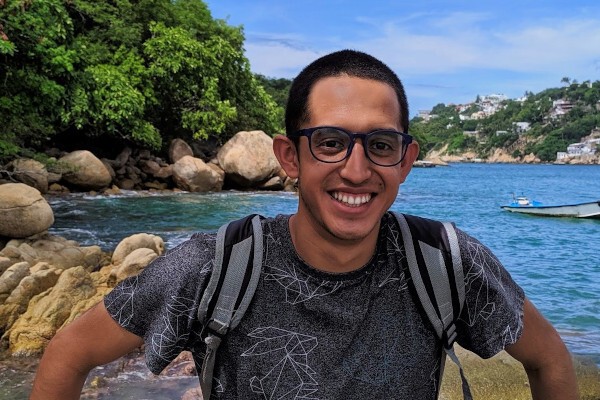
Javier Tejeda Mora
Ph.D. Student
BSc. in Nanoscience and Nanotechnology, UNAM, Mexico
I am interestred in the underlaying paterns that hide within the sea of information that recent techniques have allowed access to. I did my bachelor thesis project at CICESE in Mexico where I was introduced to metabolomics. I analyzed data from metabolites of a wide range of microorganisms. During my PhD in the Husnik Unit, my aim is to perform metabolomics analyses that will help to elucidate diverse host-symbiont interactions. Outside of work I enjoy sports (mainly those that involve a raquet) and videogames.
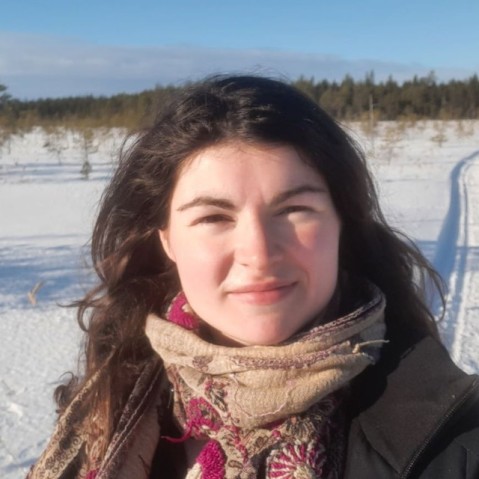
Vera Emelianenko
Ph.D. student
BSc. in Biology, Moscow State University, Russia
I am broadly interested in marine invertebrates and their relationships with symbionts. During my rotation, I will compare Symbiodiniaceae distribution across different hosts (corals, foraminifera, possibly clams) and environments (seawater and sediment). Besides that, I am extremely curious to know what kinds of animals you can find in different environments around Okinawa, so I’ll be also helping with Arno’s project exploring marine and mangrove meiofauna. In my free time, I enjoy hiking, snorkeling, and diving (still haven’t done it much in Okinawa!), also trying to learn photography and social dancing (such as salsa and west coast swing).
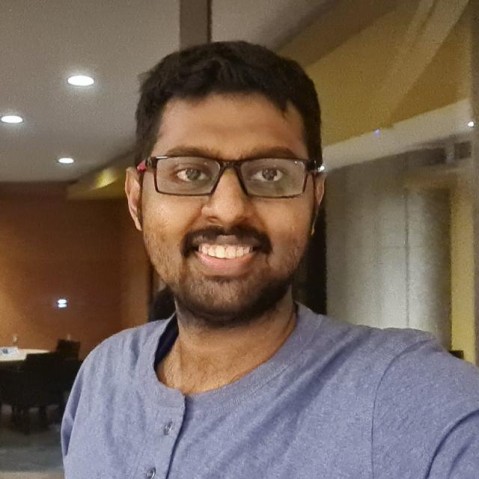
Pradeep Palanichamy
Ph.D. Student
I have a long-term scientific interest and fascination for insect-microbe symbiosis because it can provide novel avenues for the control of agricultural pest insects through targeted manipulation of the symbionts or the insect-symbiont associations. In particular, I am interested in studying the functional role of bacterial endosymbionts and other microbes in insects adaptation, nutrition, defense, metabolism, detoxification, immune functions and pest control. Insect symbionts can be also interesting sources of biotechnological applications. In the Husnik Unit, my research focuses on the interplay between scale insects and their symbiotic microbes using microscopy, molecular and omics techniques. Apart from work, I enjoy cricket, football, table tennis and playing video games.

Jinyeong Choi
Postdoctoral Scholar
I am interested in the evolution of plant-feeding insects and their microbial symbionts. Specifically, my research focuses on understanding the role of symbiont replacements and host niche expansion on diversification of scale insects. Previously, I have studied the taxonomy and phylogeny of scale insects, especially mealybugs (Pseudococcidae) and soft scales (Coccidae). In my research, I try to combine comparative genomics, microscopy, insect systematics, ecology, and phylogenomics to approach my scientific questions. To have even more fun, I enjoy outdoors activities such as swimming, skin diving, fly fishing, as well as collecting scale insects!
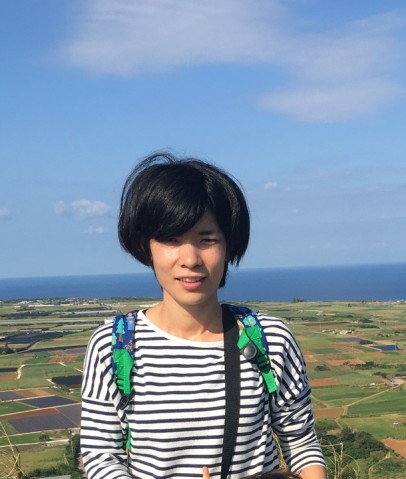
Yumiko Masukagami
Research Technician
I am interested in host-symbiont interactions and reductive genome evolution in bacteria. My research focuses on how the simplest self-replicating bacteria such as Mycoplasma spp. persist in the host and how bacteria become symbiotic in the host cells. I previously worked as a postdoc at the National Institute of Animal Health in Tsukuba and in the Membranology Unit at OIST. Apart from science, I enjoy my time with family and our cats, badminton, and exploring Okinawa.
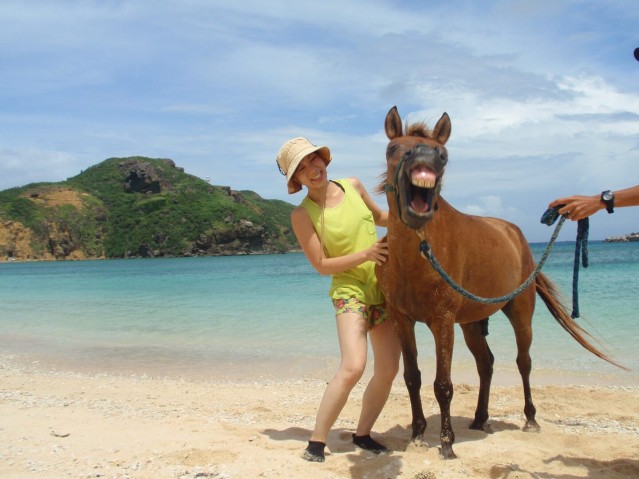
Sachie Matsuoka
Research Unit Administrator
I've been working as an RUA ever since I moved to Okinawa in 2013. I'm grateful for the chance to be a part of ECBSU from Oct.2022, and hope to contribute to unit operation in some way. I'm interested in all living creatures (particularly birds), folk crafts, farming, and marine activities.




